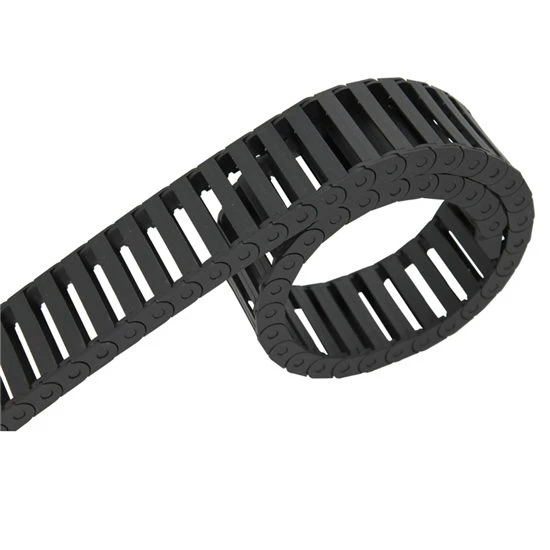nylon drag chain
Understanding Nylon Drag Chains Applications and Benefits
Nylon drag chains, also known as cable carriers or energy chains, play a crucial role in various industrial applications. These components are designed to protect and manage cables, hoses, and other flexible lines, ensuring they operate efficiently without being damaged. In this article, we'll explore the characteristics, advantages, and applications of nylon drag chains, highlighting why they are a preferred choice in many industries.
What is a Nylon Drag Chain?
A nylon drag chain is a flexible, segmented track that guides the movement of cables and hoses in machinery and equipment. Made from durable nylon, these drag chains have segmented links that allow for easy movement and bending, making them suitable for environments where flexibility is essential. Their structure enables them to withstand the repeated motion and vibration often found in dynamic applications, making them ideal for use in machines that require continuous movement.
Key Features of Nylon Drag Chains
1. Durability Nylon is renowned for its toughness and resistance to wear and tear. Nylon drag chains can endure high levels of stress and friction, extending the lifespan of the cables and hoses they carry.
2. Lightweight Although durable, nylon is also lightweight compared to metals, allowing for easy installation and reduced load on moving systems. This quality can lead to energy savings and lower operating costs.
3. Flexibility Nylon drag chains can bend and twist in multiple directions while maintaining cable integrity. This flexibility is critical in robotic arms and automated machinery, where movement occurs in various planes.
4. Resistance to Chemicals Nylon can withstand exposure to a range of chemicals, making it suitable for use in environments where corrosive substances are present. This resistance ensures longevity in harsh conditions.
5. Easy Installation Many nylon drag chains are designed with user-friendly features for straightforward installation. Their design often includes mounting brackets that simplify the setup process, saving time and labor costs.
nylon drag chain

Applications of Nylon Drag Chains
Nylon drag chains are widely used across various industries due to their versatility and efficiency. Here are some common applications
- Robotics In robotic systems, drag chains help manage the cables that control motors and sensors. Their flexibility allows robots to move fluidly without tangling wires, thus enhancing performance and reliability.
- CNC Machines Computer numerical control (CNC) machines benefit from nylon drag chains, which keep power and data cables organized and protected from debris and mechanical wear, ensuring precision during operation.
- Automated Manufacturing In automated assembly lines, drag chains facilitate the movement of pneumatic hoses and electrical cables, reducing downtime and maintenance costs due to cable damage.
- Conveyor Systems For conveyor belts, nylon drag chains guide power cables and sensor lines, permitting smooth operation and reducing the risk of cable failure due to excessive bending or twisting.
- Elevators and Lifts Nylon drag chains can also be found in elevators and lifts, managing the various cables that are necessary for their operation, thus enhancing safety and reliability.
Conclusion
Nylon drag chains are an essential component in many industries, offering a blend of durability, flexibility, and ease of use. Their ability to protect and manage cables and hoses in dynamic environments makes them invaluable to modern manufacturing and automation. As industries continue to evolve and seek efficiencies, nylon drag chains will likely remain a critical part of the machinery landscape, adapting to new requirements and technologies. Whether in robotics, CNC machines, or automated systems, the benefits of nylon drag chains contribute significantly to operational success and reliability.








